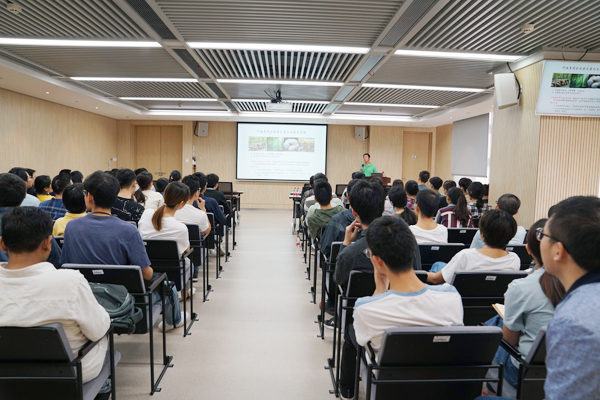

On November 5th 2019, Professor Yong Huang, from Technical Institute of Physics & Chemistry, Chinese Academy of Sciences visited AISMST and gave a lecture of “Regulation of weak intermolecular/intramolecular interaction and intercrystalline interactions and controllable preparation of nanocellulose”. He has fully communicated with faculties and students about common issue of the scientific research.
“Cellulose is a linear polysaccharide consisting of hundreds to over ten thousand β-1,4 linked glucose units. With lots of hydroxyl groups, a large network of hydrogen bonds and tightly ordered molecular chains in the crystallization zone, cellulose has a certain extent of hydrophilic, reductive and mechanical properties. The nanocrystallization and functional modification of cellulose can be achieved by nano-processing techniques.” In his lecture, Professor Yong Huang mainly discussed the influence factors about callous nanocrystallization. Due to the difference of interaction between different crystal faces of cellulose crystals, compound molecules of different polarity can enter into different crystal faces which change corresponding crystal faces interaction. The influence of changing the polarity of system on the morphology of nanomaterials formed during cellulose nanocrystallization and the variation of the morphology of nanomaterials with the polarity of additives were also discussed.
Professor Huang has been engaged in the field of modification, functionalization and utilization of natural renewable resources for a long time. He has received more than 40 research grants that from MOST, NSFC, CAS and Guangdong Province, etc. His research found that the weak interaction between and within the chains of cellulose macromolecule can be controlled by adjusting the polarity of additives. It can realize the regulation of the mode and degree of cellulose fiber degradation in the process of nanocrystallization. One-dimensional, two-dimensional, or one-dimensional/two-dimensional hybrid nanomaterials are prepared to control the morphology of cellulose nanomaterials.
